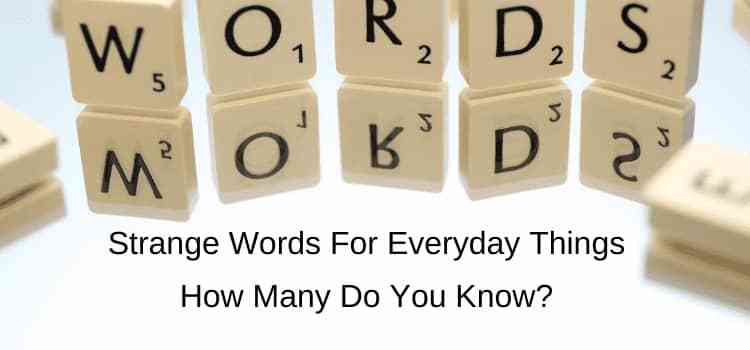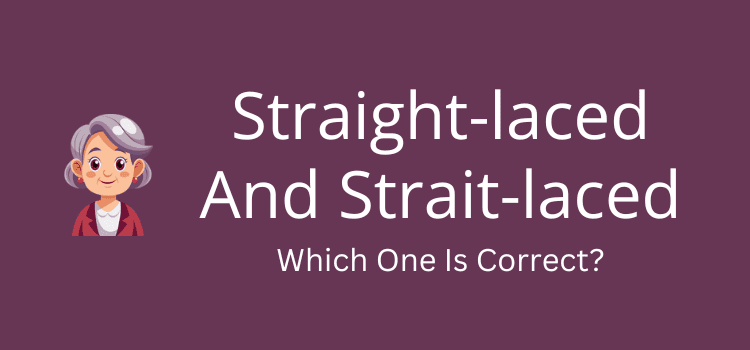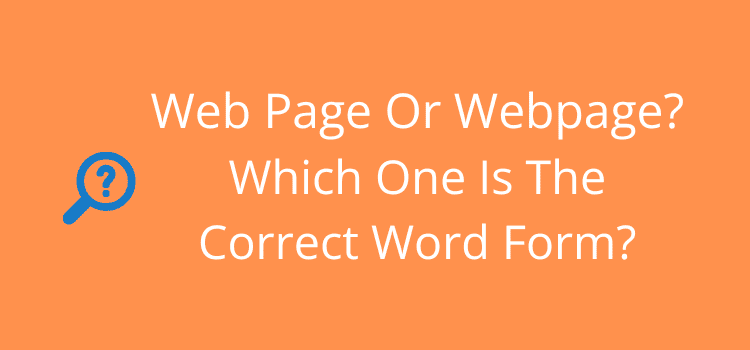
The vocabulary we use when writing about the Internet and technology is constantly evolving. Deciding whether to use web page or webpage is a perfect example, even if both are correct and acceptable.
When we use words that start with web, there is often a choice between a one-word or two-word variant. But which one is correct, or the best choice?
As with many things grammatical and lexical in English, there is no hard and fast rule.
You can only base your decisions on up-to-date dictionary entries, everyday usage, or style guide recommendations.
Why we use web as a word and prefix
The word web comes from the invention of the World Wide Web (WWW) in 1989 by Tim Berners-Lee.
We still see it today in many internet addresses that include www. before a site name.
Although we still use the word Internet to describe anything online, it is now more commonly known simply as the Web.
Because of this, the word web started to be added to existing words to indicate an online object or activity.
In the early days of the Web, it was common to use the word internet. Who can forget the famous Internet Explorer browser from Microsoft in the mid to late nineties? It was the most popular browser of its day.
Another popular early browser was Netscape Navigator, which shortened the Internet to Net. Because of this, we still often refer to the Internet as the Net.
Once the word web and, to a lesser degree, net, became fixtures in everyday language, they have been added to many existing words to form new words relating to technology.
You can probably think of many, such as web servers, web analysts, web hosts, and web designers.
However, you might also think of webmail, webcam, and webinar.
You can see the problem here. When do you use one word or two?
Web page or webpage? Web site or website?
These two word choices are probably the most debated in modern language and grammar use for technology terms.
You can find hundreds of forums and social media entries discussing the topic.
When you search for advice from well-known style guides, you will often find conflicting conclusions.
Some say one word, some say two.
The best decision for your writing is to choose the form you feel comfortable using.
You can also look at usage trends. Here are two examples of how word usage changes and evolves.
Let’s start with the trend graph of web page and webpage.
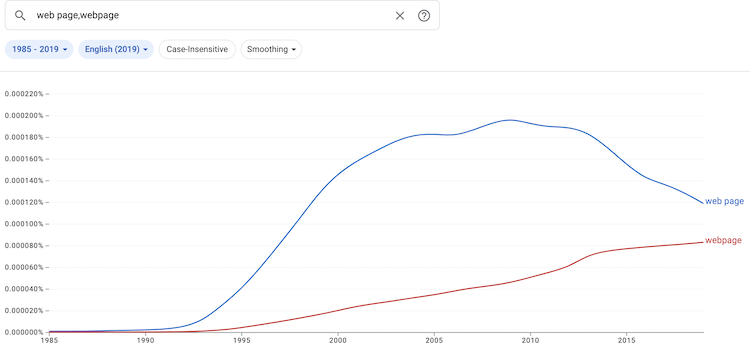 Clearly, web page was the first form from around 1993 and continued to be the most common variant up until around 2010.
Clearly, web page was the first form from around 1993 and continued to be the most common variant up until around 2010.
But from 2010 onwards, webpage as one word has increased in use consistently, while web page is rapidly declining.
However, the change from two words to one is more dramatic for web site and website.
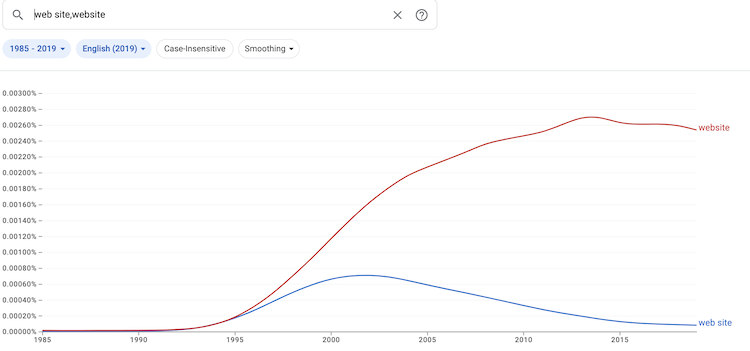 The graph clearly indicates that the two-word variant peaked around 2000 but is now disappearing from common use.
The graph clearly indicates that the two-word variant peaked around 2000 but is now disappearing from common use.
It’s pretty easy to draw the conclusion that the one-word variants are now firmly entrenched as the best ones to use.
This is clearly true for webpage and website.
However, this is not always the case with other web words.
When to use two words or only one
While there’s no rigid rule, you will often find words that are formed from abbreviations become one word with web.
Think about the words webcam, webinar, webzine, and webmail.
These words are formed by abbreviating camera to cam, seminar to -inar, magazine to zine, and email to mail.
In instances like these, the most common forms are one word.
On the other hand, when adding full words to web, the two-word form is usually the correct form.
Examples include web analyst, web development, web standards, web hosting, and web design.
One rarity now is to use a hyphen. It took some years for E-mail and e-mail to finally become email; now, it is often simply called mail.
The only time you might see a hyphen is with a compound adjective, such as a web-based application.
Inclusive language with web
One word that stands out and definitely needs addressing in your writing is the word webmaster.
It is a gender-specific word, and you can now find better alternatives.
These include website manager, website/web administrator, or simply site owner.
Most technology companies, services, and writers have moved on to replace the word with more inclusive vocabulary.
The one standout remaining is Microsoft, which still calls its site analytics program for web owners Bing Webmaster Tools.
I’m sure this will change in the not-too-distant future.
What are the best word choices?
Consistency is more important than your choice.
I have to say that I prefer to use one word for website and webpage and also when using web words that incorporate an abbreviation.
In most other cases, I would use two words.
But you won’t be wrong if you use web page in two words for instance. The only way you can go wrong is by mixing your usage of the two-word and one-word forms.
If you choose the two-word form, stick to it.
One last consideration is if you are freelance writing for newspapers or magazines.
Most publishers follow a specific style guide for vocabulary and grammar usage recommendations. In this case, it would pay to check which words or forms are acceptable.
Summary
Vocabulary related to the Internet, the Web, and technology is always changing, evolving, and adding new words.
Sometimes it’s hard to keep up. I know my word usage regarding technology has changed a lot over the many years that I have been writing.
I used web page as two words for a long time. But now I have started to use the one-word form because is’t more logical alongside the word website.
For writers, it’s now an everyday challenge to navigate and solve. Choosing the best words or word combinations will no doubt change over time.
All you can do is try to stay informed as much as you can and adapt your writing to the current trends in technology vocabulary.
One thing is for sure, though. Whatever vocabulary you use today may not be what you will use in a few years time.
Related Reading: De-escalate Or Deescalate? Which One Is The Correct Form?


